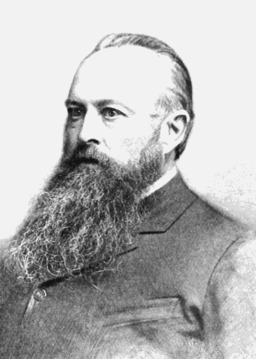Sometimes it is interesting to look back on historical statements and see if they have anything to tell us. This comes from Lord Acton’s lecture on “History of Freedom in Antiquity”. Lord Acton was an interesting fellow who never got around to writing that Big Important Book yet has had lasting influence, even beyond many of his impressive list of foes.
Here we can see him talk about the need for constitutional power arrangements. Brown would have agreed: as long as you keep things down to a certain size, you can escape despotism if you have certain other things going for you.
Wherever we can trace the earlier life of the Aryan nations we discover germs which favouring circumstances and assiduous culture might have developed into free societies. They exhibit some sense of common interest in common concerns, little reverence for external authority, and an imperfect sense of the function and supremacy of the state. Where the division of property and of labour is incomplete, there is little division of classes and of power. Until societies are tried by the complex problems of civilization they may escape despotism, as societies that are undisturbed by religious diversity avoid persecution. In general, the forms of the patriarchal age failed to resist the growth of absolute states when the difficulties and temptations of advancing life began to tell; and with one sovereign exception, which is not within my scope to-day, it is scarcely possible to trace their survival in the institutions of later times. Six hundred years before the Birth of Christ absolutism held unbounded sway.
From what they can tell, Native American historians believe that although the peoples of the area around what is now the northeastern U.S. had rulers who in title were supreme, the fact that anyone could walk off to another people, another tribe, or even just leave (America was a wonderland of plentiful food: the Puritans starved because they didn’t understand how to live in such a place). This meant that leaders often led by going where their followers wanted to go.
These principles hold for work groups. As long as they can maintain a small enough size, there is little reason to fear that work despotism will grow. That size is probably related to the Dunbar number, which would put it around 150, give or take. (Smaller in modern societies.)
Above that number and you start needing to organize things to ensure that the pieces that no one wants to do actually get accomplished. In Open Source Software, this is usually documentation and GUI: to a programmer, these are afterthoughts, not the parts to build a reputation on. In organizational work, this may be the other parts that aren’t prestigious but need doing.
(Interestingly, a paper awhile back talked about how the professor with the most seniority usually got stuck cleaning the toilet because he could see the most consequences from not doing it for the department. Seems relevant,)
Once you get to a particular size, you start wanting Someone to solve the problems, and sociopaths are very happy to step into that role and become your despot. Recall that many people in Russia still worship Stalin, as the Chinese worship Mao. It’s not important that they were both responsible for the deaths of millions, because those millions deserved to die. Despots often rise in democratic societies, freely elected, e.g. Adolph Hitler in a democratic Germany. He would later steal the rest of his power, but the German people elected him first.
This is what so many organizational design professionals don’t seem to get, this despotic nature of humanity. Brown understood it, perhaps because like Washington and Gandhi he knew that he could be tempted to power. You build constitutional arrangements that limit power not because they are more effective (they’re not) but because they rule out despotism in the workplace, which is bad for prices in the long run.
Of course, most stockholders want despotism because they believe that it is more efficient. American capitalists, it should be remembered, supported the rise of Hitler and Lenin because they believed that competition was inefficient. Current people talk about authoritarian regimes in the same way. You hear people get all dewy eyed talking about the oppressive Chinese government because it “gets things done”, while they malign the Indians who struggle with a real and growing democracy, which slows things down.
These people fail to recall Acton’s little statement about the papacy: “power tends to corrupt and absolute power corrupts absolutely”.
Image Credit: © Mlenny Photography (iStockphoto)


